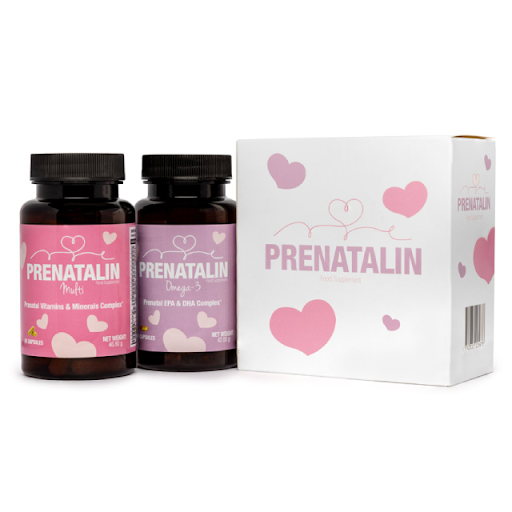The Importance of Prenatal Care: 20 Reasons You Shouldn't
Ignore
Pregnancy is a magical journey filled with anticipation and
excitement, but it's also a time when you need to prioritize your health and
well-being. Prenatal care, also known as antenatal care, plays a pivotal role
in ensuring a healthy pregnancy for both the mother and the baby. In this
comprehensive guide, we will delve into the essence of prenatal care, why it is
of utmost importance, and how you can enhance your prenatal care experience.
## What is Prenatal Care?
Prenatal care encompasses a series of medical check-ups,
lifestyle adjustments, and educational resources designed to monitor and
support the health of expectant mothers and their unborn babies throughout the
pregnancy journey. These care measures aim to detect and address any potential
complications early on, ensuring a smoother and safer pregnancy.
## The Significance of Prenatal Care
1. Early Detection of Pregnancy
One of the fundamental aspects of prenatal care is
confirming and dating the pregnancy accurately. This early detection allows
healthcare providers to establish a solid foundation for a healthy pregnancy.
2. Monitoring Fetal Growth
Regular check-ups help in tracking the growth and
development of the fetus. This ensures that the baby is progressing as expected
and that any deviations are addressed promptly.
3. Managing High-Risk Pregnancies
For women with pre-existing medical conditions or a history
of complicated pregnancies, prenatal care is essential. It enables healthcare
professionals to develop tailored care plans to mitigate potential risks.
4. Nutritional Guidance
A crucial component of prenatal care is receiving guidance
on proper nutrition. This helps in ensuring that both the mother and the baby
are getting the essential nutrients required for optimal health.
5. Preventing Birth Defects
Prenatal care involves screenings and tests that can
identify potential birth defects or genetic abnormalities, allowing parents to
make informed decisions about their baby's future health.
6. Managing Pregnancy Discomfort
Expectant mothers often experience discomfort during
pregnancy. Prenatal care offers advice and strategies to manage common
pregnancy-related issues like morning sickness, back pain, and heartburn.
7. Emotional Support
Pregnancy can be emotionally taxing. Prenatal care providers
offer emotional support and resources to help expectant mothers cope with the
psychological challenges of pregnancy.
### 8. Preparing for Labor and Delivery
Prenatal classes and information provided during prenatal
care help expectant parents prepare for labor and delivery, making the process
less daunting.
### 9. Reducing the Risk of Preterm Birth
Proper prenatal care can significantly reduce the risk of
preterm birth, which is crucial for the baby's health and development.
### 10. Blood Pressure Management
Monitoring blood pressure is vital during pregnancy, as high
blood pressure can lead to complications. Prenatal care ensures timely
intervention if any issues arise.
## How to Enhance Your Prenatal Care Experience
### 11. Choose a Qualified Healthcare Provider
Selecting an experienced and compassionate healthcare
provider is the first step to ensuring top-notch prenatal care.
### 12. Attend Regular Check-ups
Consistency is key. Attend all scheduled prenatal
appointments to stay informed about your pregnancy's progress.
### 13. Communicate Openly
Don't hesitate to discuss any concerns or questions with
your healthcare provider. Open communication is essential for personalized
care.
### 14. Follow a Balanced Diet
Adopt a diet rich in fruits, vegetables, lean proteins, and
whole grains to provide the necessary nutrients for you and your baby.
### 15. Stay Hydrated
Proper hydration is crucial. Drinking enough water helps
maintain amniotic fluid levels and supports overall well-being.
### 16. Exercise Safely
Engage in safe and approved prenatal exercises to promote
physical fitness and reduce discomfort.
### 17. Get Adequate Rest
Prioritize sleep and rest to combat fatigue and support your
body's needs during pregnancy.
### 18. Manage Stress
Find healthy ways to manage stress, such as meditation, deep
breathing, or prenatal yoga.
### 19. Educate Yourself
Take advantage of prenatal classes and educational resources
to stay informed about the pregnancy process.
### 20. Seek Support
Lean on your support network, including family and friends,
for emotional and practical assistance during your pregnancy journey.
In conclusion, prenatal care is a cornerstone of a healthy
and successful pregnancy. By embracing these 20 reasons and following the
guidelines provided, you can optimize your prenatal care experience, ensuring
the well-being of both you and your precious baby. Remember, your journey to
motherhood is unique, and proper prenatal care is your compass for a safe and
joyful voyage.
Prenatalin is a set of two food supplements designed for women who are pregnant, nursing and trying to get pregnant.
The set includes two products:
The product contributes to the growth of maternal tissues during pregnancy, supports the normal development of the fetus and breastfed infants, and helps maintain fertility. Prenatalin is an excellent support for the mother and baby during a period when nutrient requirements are significantly increased.


